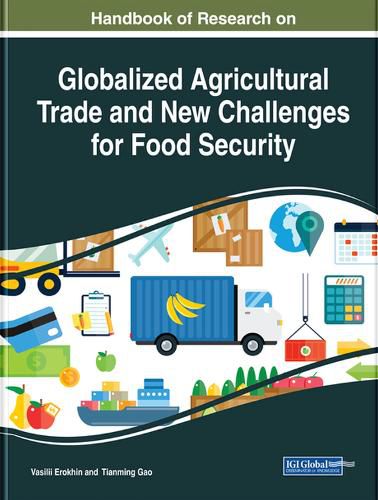Readings Newsletter
Become a Readings Member to make your shopping experience even easier.
Sign in or sign up for free!
You’re not far away from qualifying for FREE standard shipping within Australia
You’ve qualified for FREE standard shipping within Australia
The cart is loading…






This title is printed to order. This book may have been self-published. If so, we cannot guarantee the quality of the content. In the main most books will have gone through the editing process however some may not. We therefore suggest that you be aware of this before ordering this book. If in doubt check either the author or publisher’s details as we are unable to accept any returns unless they are faulty. Please contact us if you have any questions.
Free trade promotes economic growth through international competition and the efficient allocation of resources while also helping to stabilize food supplies between countries that have an overabundance of product and countries that have a shortage. However, sudden price surges can threaten the social cohesion of developing countries and may lead to malnutrition and stunted growth. Balancing trade liberalization and protectionism is imperative for the provision of food security for all.
The Handbook of Research on Globalized Agricultural Trade and New Challenges for Food Security is an essential publication that seeks to improve food security, food independence, and food sovereignty in the conditions of globalized agricultural trade and addresses the contemporary issues of agricultural trade including major commodities and food products traded between major countries, directions of trade, and trends. The book also examines the effects of tariff escalations, administrative restrictions, other forms of trade protectionism on food security, and the emerging trade tensions between major actors such as the US, China, the EU, and Russia. Featuring research on topics including plant fertility, dietary diversity, and protectionism, this book is ideally designed for government officials, policymakers, agribusiness managers, stakeholders, international tradesmen, researchers, industry professionals, academicians, and students.
$9.00 standard shipping within Australia
FREE standard shipping within Australia for orders over $100.00
Express & International shipping calculated at checkout
This title is printed to order. This book may have been self-published. If so, we cannot guarantee the quality of the content. In the main most books will have gone through the editing process however some may not. We therefore suggest that you be aware of this before ordering this book. If in doubt check either the author or publisher’s details as we are unable to accept any returns unless they are faulty. Please contact us if you have any questions.
Free trade promotes economic growth through international competition and the efficient allocation of resources while also helping to stabilize food supplies between countries that have an overabundance of product and countries that have a shortage. However, sudden price surges can threaten the social cohesion of developing countries and may lead to malnutrition and stunted growth. Balancing trade liberalization and protectionism is imperative for the provision of food security for all.
The Handbook of Research on Globalized Agricultural Trade and New Challenges for Food Security is an essential publication that seeks to improve food security, food independence, and food sovereignty in the conditions of globalized agricultural trade and addresses the contemporary issues of agricultural trade including major commodities and food products traded between major countries, directions of trade, and trends. The book also examines the effects of tariff escalations, administrative restrictions, other forms of trade protectionism on food security, and the emerging trade tensions between major actors such as the US, China, the EU, and Russia. Featuring research on topics including plant fertility, dietary diversity, and protectionism, this book is ideally designed for government officials, policymakers, agribusiness managers, stakeholders, international tradesmen, researchers, industry professionals, academicians, and students.